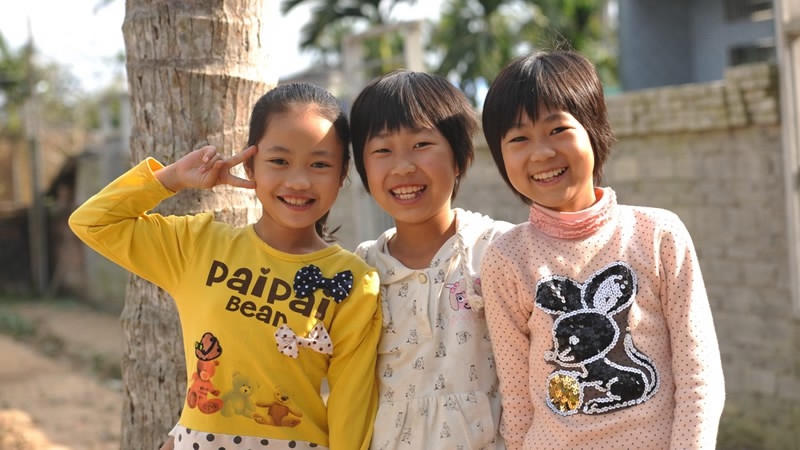“To better meet the ever-growing material and cultural needs of the people and give them a greater ‘sense of gain’ is the starting point of all our work,” Chi Fulin, President of the China Institute for Reform and Development in the southern province of Hainan, wrote in a commentary published in Guangming Daily, a Beijing-based newspaper, on December 30, 2016.
Based on improving people's livelihood and building a prosperous society in all respects, the concept of “the sense of gain” was initiated by Chinese President Xi Jinping in February 2015.
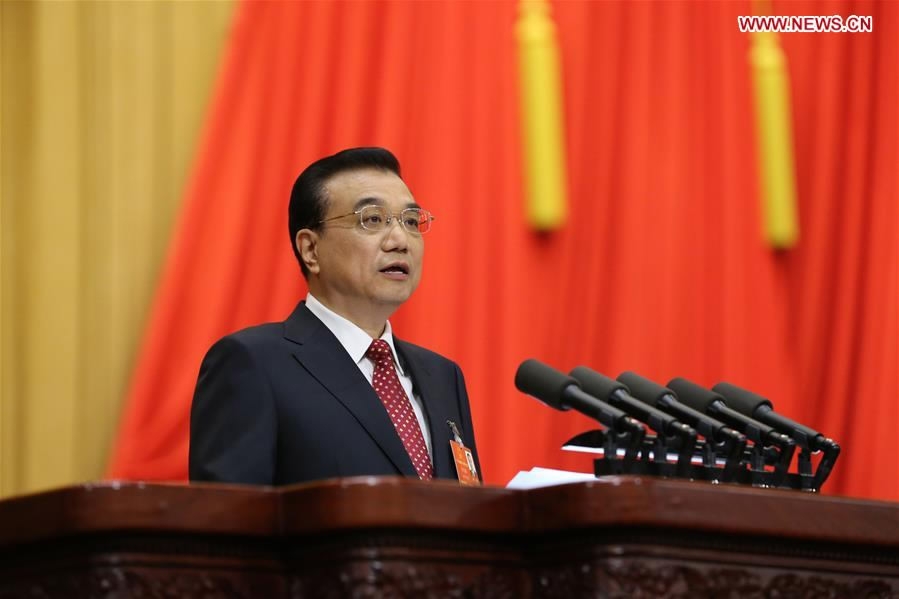
Chinese Premier Li Keqiang pledges to strengthen basic safeguards for public wellbeing last year when delivering the government work report in Beijing on March 5, 2016. /Xinhua Photo
Chinese Premier Li Keqiang pledges to strengthen basic safeguards for public wellbeing last year when delivering the government work report in Beijing on March 5, 2016. /Xinhua Photo
Thanks to fruitful efforts by the Chinese government in areas such as poverty relief, job creation, healthcare reform, social security, housing and environmental protection in 2016, most citizens’ sense of gain has been enhanced in a comprehensive way, marking a strong start for the country’s 13th Five-Year Plan period (2016-2020).
Over 10 million people lifted out of poverty
“I care about the poor the most,” Xi said in his New Year speech on December 31, 2016.
Last year, the central government and provincial authorities spent more than 100 billion yuan on poverty reduction and dispatched 128,000 task forces and over 540,000 officials to combat poverty in poor villages. By the end of 2016, more than 10 million people had been pulled out of poverty across the country.
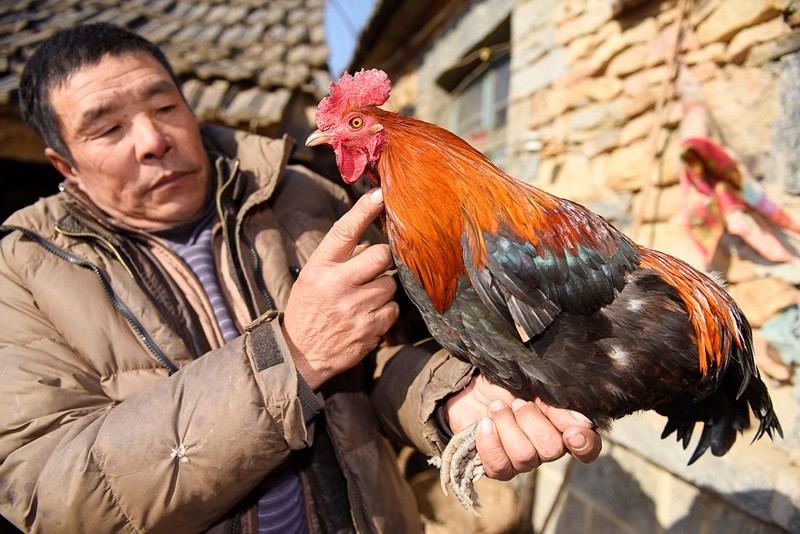
Cui Jiutai, a villager in Donggang District, Rizhao in east China's Shandong Province, looks at his rooster which he hopes to sell at a good price on January 16, 2017. /CFP Photo
Cui Jiutai, a villager in Donggang District, Rizhao in east China's Shandong Province, looks at his rooster which he hopes to sell at a good price on January 16, 2017. /CFP Photo
According to a poverty alleviation plan issued last year, the government has vowed to lift all Chinese out of poverty by 2020, which means taking at least 10 million people out of poverty each year during the period stretching from 2016 to 2020. The plan also puts an emphasis on the principle of “precision” poverty relief, which means China will take precise, targeted and differentiated measures to ensure effective poverty reduction.
Over 13 million new jobs for urban residents
China created 13.14 million new jobs for urban residents last year, exceeding the whole-year target of 10 million.
The registered unemployment rate in Chinese cities stood at 4.02 percent at the end of 2016, well below the government's target of 4.5 percent, according to data released by the Ministry of Human Resources and Social Security (MHRSS) on January 23, 2017.
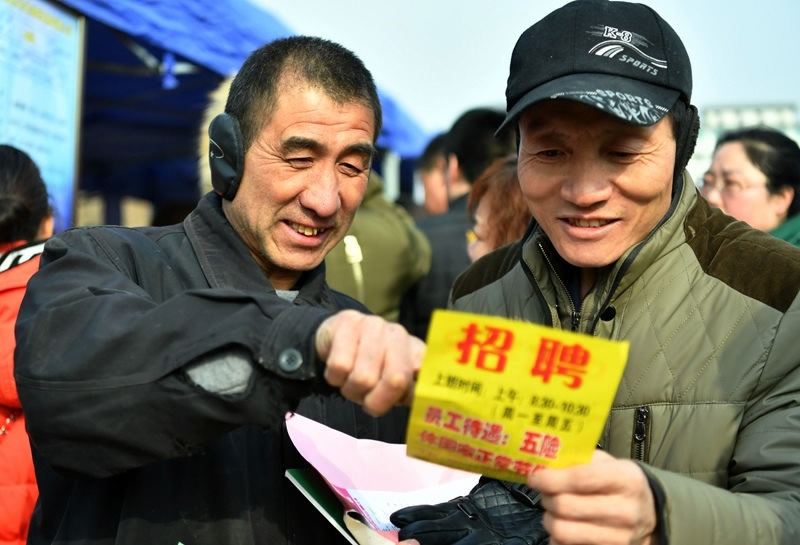
Migrant workers look for jobs at a job fair in Shijiazhuang, Hebei Province in north China. /CFP Photo
Migrant workers look for jobs at a job fair in Shijiazhuang, Hebei Province in north China. /CFP Photo
Despite economic slowdown, China's job market remained stable last year, MHRSS spokesperson Lu Aihong said at a press conference.
The government rolled out an array of pro-employment policies for college graduates, laid-off workers from glutted industries and migrant workers, while the country's entrepreneurial wave also helped job creation, Lu said.
Over six million housing units rebuilt in rundown urban areas
Renovation of rundown areas aims at providing low-income urban residents with comfortable and affordable housing.
In 2016, China started rebuilding 6.06 million housing units in rundown urban areas across the country, surpassing the annual target of six million, and spent 1.48 trillion yuan (about 210 billion US dollars) on the program, according to data from the Ministry of Housing and Urban-Rural Development.
This year, the country plans to renovate another six million substandard houses.
A national network of basic medical insurance
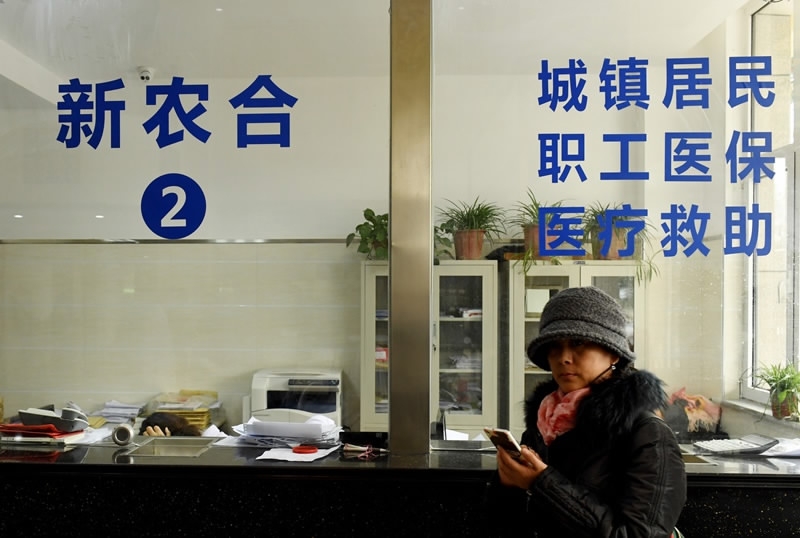
China pledged to build a national network of basic medical insurance by the end of 2016. /CFP Photo
China pledged to build a national network of basic medical insurance by the end of 2016. /CFP Photo
“Health is at the root of happiness,” Chinese Premier Li Keqiang stressed in last year’s Report on the Work of the Government.
In the report, Li pledged to “reform the ways for making medical insurance payouts and expedite the building of a nationwide network for basic medical insurance so that medical expenses can be settled where they are incurred via basic medical insurance accounts” in 2016.
According to a circular jointly released by the MHRSS and the Ministry of Finance in December 2016, the building of the national network of basic medical insurance would be completed by the end of the year. Work would then begin on direct settlement of retirees' inpatient costs in non-residential places. By 2017, patients will be able to enjoy direct settlement of expenses after transferring to a designated hospital in another province.
Air quality in 84 cities reaches national standard
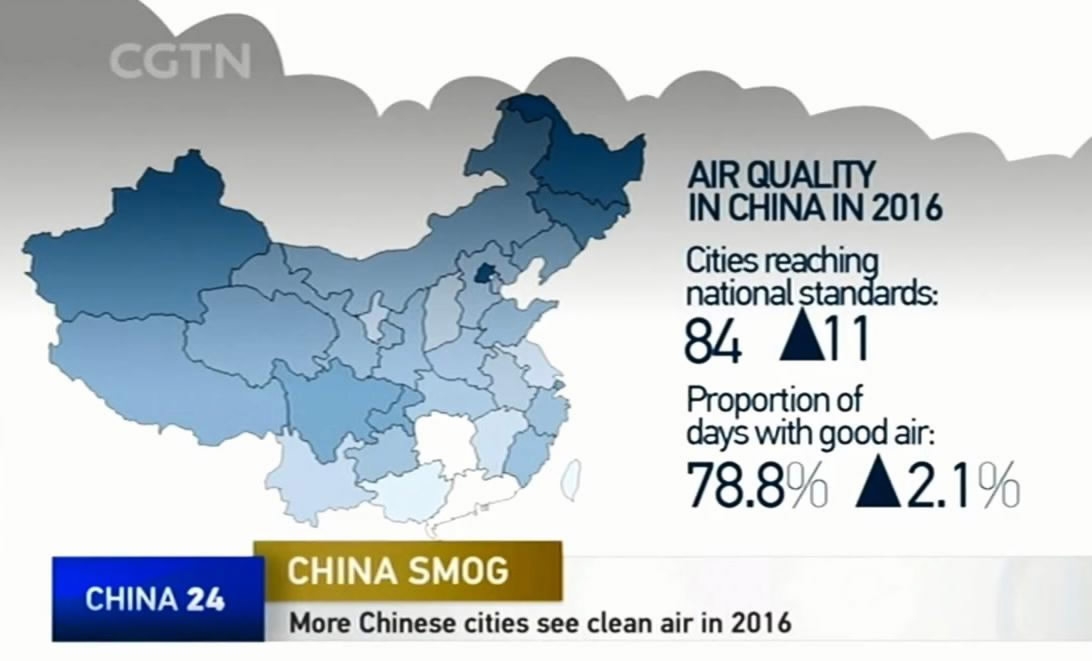
Among 338 Chinese cities, air quality in 84 reached national standards in 2016, up from 73 in 2015. /CGTN Screenshot
Among 338 Chinese cities, air quality in 84 reached national standards in 2016, up from 73 in 2015. /CGTN Screenshot
More Chinese cities saw better air quality last year as measures to control air pollution carried out by the central government continued to further materialize.
Data from the Ministry of Environmental Protection shows that among 338 major cities, the air quality in 84 reached the national standard, up from 73 in 2015. The proportion of days with good or relatively good air quality in the year rose to about 80 percent, up 2.1 percentage points from a year ago.
Despite the improvement, northern China still suffered from serious air pollution last year. The Beijing-Tianjin-Hebei megalopolis remained the place hardest hit by smog.
The central government has promised to do more to reduce hazy days, including promoting the use of clean fuel, curbing industrial gas emissions and toughening supervision.
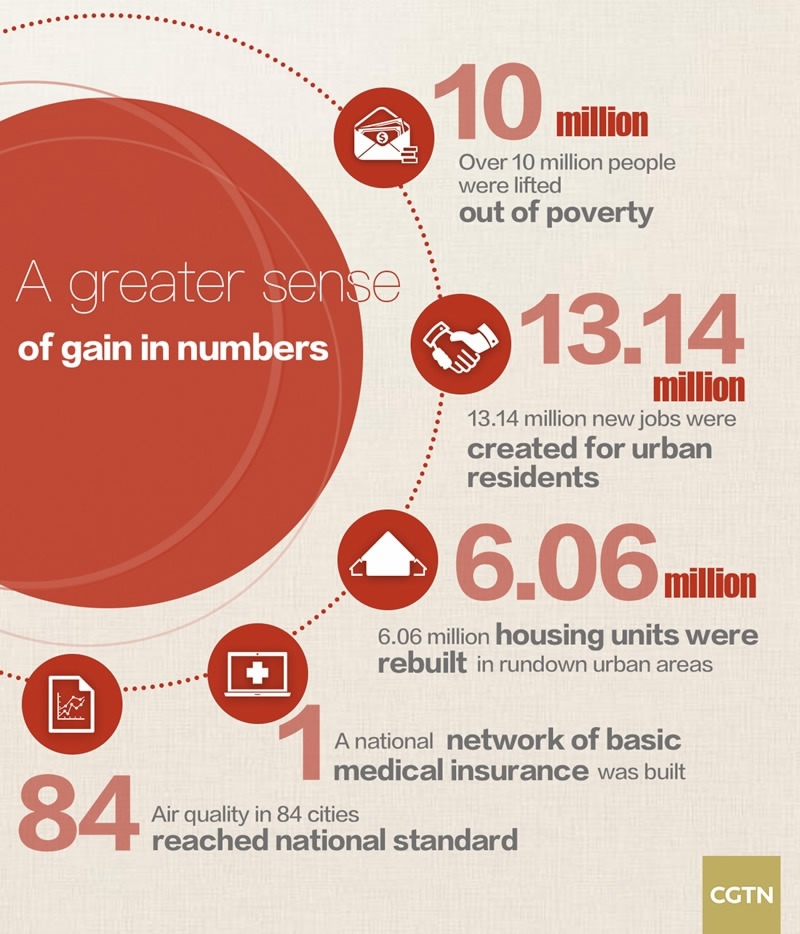
Great strides have been made to improve Chinese people’s livelihood in 2016. /CGTN Photo
Great strides have been made to improve Chinese people’s livelihood in 2016. /CGTN Photo
In addition to these achievements, remarkable advances were made in other areas last year, ensuring that everyone shares in the fruits of development.
The continuous increase of people’s income, the steady growth of pensions for more than 100 million retirees, the promotion of equitable access to compulsory education at county level and the cancellation of various transaction fees by a number of banks all contributed to a greater sense of gain among ordinary Chinese citizens.

